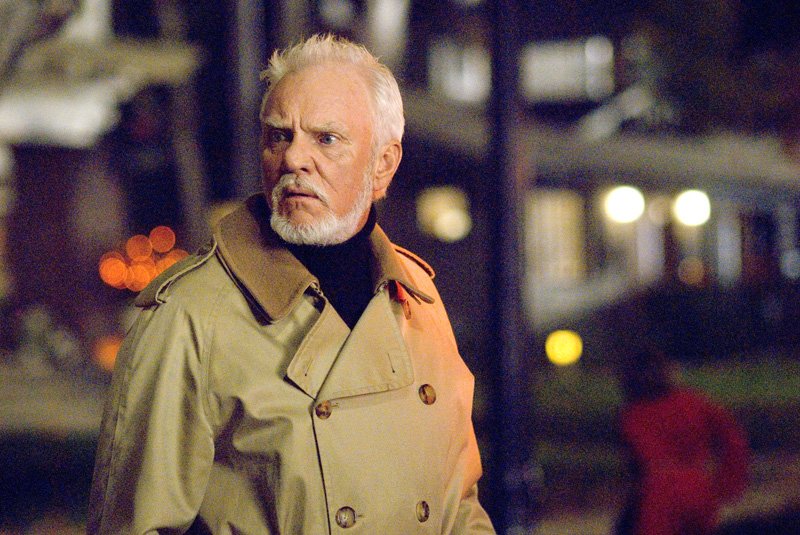
Rob Zombie gets a rock
 Credit Rob Zombie for at least this much — he opted to offer a different perspective on John Carpenter‘s 1978 horror classic Halloween rather than to simply update it. The problem is not that his new take fails to improve upon the original story, but that it detracts from it in crucial ways. While this was perhaps predictable, it is nonetheless disappointing.
Credit Rob Zombie for at least this much — he opted to offer a different perspective on John Carpenter‘s 1978 horror classic Halloween rather than to simply update it. The problem is not that his new take fails to improve upon the original story, but that it detracts from it in crucial ways. While this was perhaps predictable, it is nonetheless disappointing.
Zombie’s biggest miscalculation is in providing a more detailed look at Michael Myers’ early life in an abusive and low-class household. Not only does this demystify the character – for part of what made the original so great was that Myers was seemingly as blank as his iconic spray-painted William Shatner mask – but it reduces him to a clichéd white trash psychopath. He is picked on at school, tortures animals, and lives with a dysfunctional family right out of Central Casting (mom is a pole dancer with a heart of gold; older sister Judith is predictably mean and slutty; live-in boyfriend Ronnie is abusive and alcoholic).
After spending entirely too much time focusing on the buildup to Myers’ brutal rampage, the middle of the film shows Michael under the care of child psychologist Dr. Samuel Loomis (the venerable Malcolm McDowell, inheriting the role from the late Donald Pleasence). While this portion sags considerably, it is made somewhat interesting in that Michael seems to be vaguely aware of the ugliness and evil lurking at his core but is either unable or unwilling to stop it from completely engulfing him.
 The adult Myers’ escape from Smith’s Grove Sanitarium, as with all of the murder scenes in this movie, is considerably more graphic than in the original. And it is at this point that the film loses its last vestiges of originality and becomes nothing but a pale imitation. After his brutal escape, Myers returns home to Haddonfield, Illinois to look for his younger sister (the adopted Laurie Strode, played by Scout Taylor-Compton). The critical establishing scenes with Laurie reveal her not as a sweet and somewhat naive teenager, but actually as a rather unlikable wiseass, a fatal flaw for the movie.
The adult Myers’ escape from Smith’s Grove Sanitarium, as with all of the murder scenes in this movie, is considerably more graphic than in the original. And it is at this point that the film loses its last vestiges of originality and becomes nothing but a pale imitation. After his brutal escape, Myers returns home to Haddonfield, Illinois to look for his younger sister (the adopted Laurie Strode, played by Scout Taylor-Compton). The critical establishing scenes with Laurie reveal her not as a sweet and somewhat naive teenager, but actually as a rather unlikable wiseass, a fatal flaw for the movie.
Likewise, Strode’s friends (and their boyfriends), who are portrayed in the original as basically decent kids with healthy sex drives, are nastier and more vulgar in Zombie’s hands. Their deaths are therefore horrific not because of who they are but simply because of the graphic way in which they are dispatched.
The climactic showdown between Michael and Laurie is the final huge letdown in the film. Through most of the confrontation she opts to flee and scream rather than fight back at all, and at one point she makes the ridiculous decision to hide herself and her babysitting charges in a bathtub (as if Myers were not a killer but a tornado). By the time the battle is over Laurie has clearly snapped, but because Zombie failed to properly cast her in a sympathetic light we have no reason to care.
Rob Zombie is no doubt a skilled director. But while his Halloween is a technically well-crafted film, it lacks any of the subtlety and spookiness of Carpenter’s spartan original. It forgoes mood and suspense and loads up on vulgarity and gory, brutal realism. Instead of reinvigorating the moribund franchise, it takes its place next to the numerous dismal sequels in the series.
